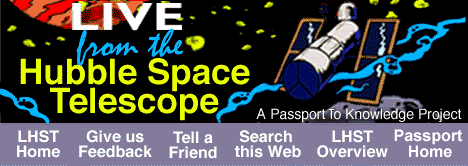

I am the NASA Operations Manager for the Hubble Space Telescope. I am responsible for the day-to-day operations of HST; to make sure that it is operated in a safe manner, that the scientific observations are carried out, and to monitor the health and performance of the spacecraft. I have government and contractor employees working for me and conducting these operational activities. Spacecraft operations is a 24 hours/day, 7 days/weeks job, requiring people to work weekends and nights. Fortunately for me, I only have to work weekdays.
My job is a middle management position at Goddard Space Flight Center, meaning I have some people working for me, but I also have many bosses. I often attending meetings where engineers present technical ideas to me, which I must either approve or disapprove. I spend a considerable amount of time in meetings or writing status reports. The most interesting part of my job is responding to spacecraft problems, such as when a piece of spacecraft hardware fails. Then, we must figure out the cause of the problem, correct it, and then resume normal operations. There is always the pressure of returning to normal operations as soon as possible, but making sure that the safety of the spacecraft is not compromised.
My career path to my current position was very winding. When I first graduated from college with a bachelor's degree in Mathematics, I moved to California and worked for two aerospace companies. I operated spacecraft for the United States Air Force and quit after three years to return to college. I obtained a teaching certificate and taught junior high school and high school in Ann Arbor, Michigan for 6 years. My wife received a job offer in Washington, D.C. and we moved there. Fortunately, a company I had worked for in California had a job opening for in spacecraft operations at Goddard Space Flight Center. I worked on the SEASAT and Solar Maximum Missions for three years. From there I was hired by NASA to work on HST. Never during this time did I have a plan as to where I wanted to be in my career at a given time, things just sort of happened.
Preparation for all my jobs has been twofold: education and hard work. I have advanced degrees in math and computer science. Beside this technical background, I've had to learn to communicate effectively both verbally and by writing. These skills are very important for everyone. You may know a lot, but if you can't communicate your knowledge to others, your technical skills are wasted. Also, you have to be able to get along with people. You'll rely on them often to help you.
My job is very satisfying and I'm proud to be a member of the Hubble Space Telescope Project. The best thing about my job is the great people who work on HST. They are very dedicated people who only want to do the very best. It makes my job a lot easier having such a great group of people. I also get satisfaction out of seeing press releases announcing great HST discoveries and knowing I played some small part in them. The thing I like least is the occasional telephone call in the middle of the night, informing me that there is a problem. It usually means I have to go to work right away! Note that I already said that troubleshooting is the most interesting part of my job, but not in the middle of the night or on weekends.
In my personal life, I'm the father of 13 year old twins, a boy and a girl. My daughter is a blue belt in Karate and is on the community pool swim team in the summer. My son is a Boy Scout and loves playing computer games. I enjoy the outdoors and rode my mountain bike 320 miles last year across the state of Maryland with 1200 other people over a 6 day period. I like camping and canoeing. We went camping in Utah and Colorado last summer. We have two dogs and a guinea pig. My wife teaches students who can't attend classes at their own school.

![]()